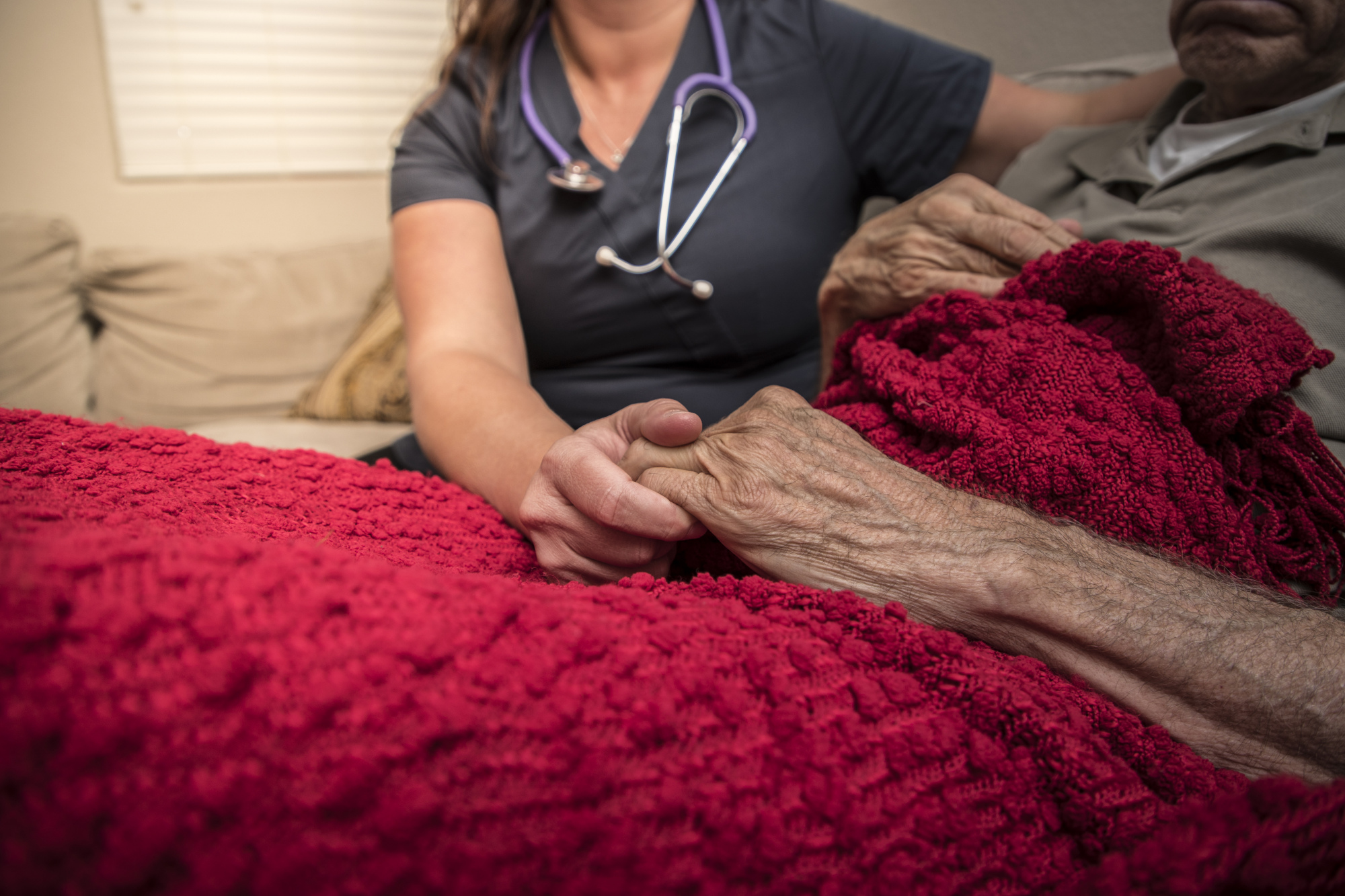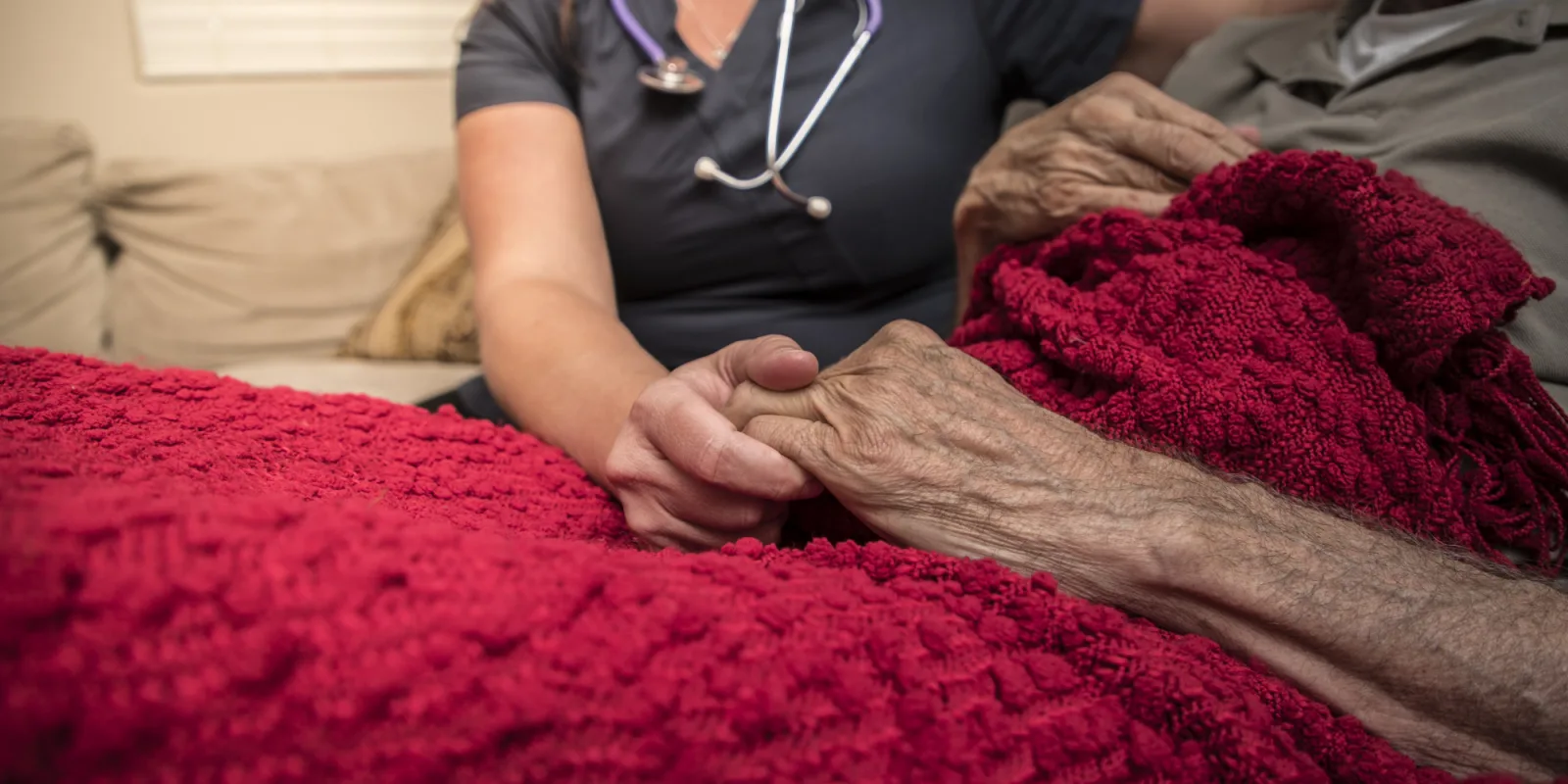
As a community of physicians, I'm sure we have all heard the phrase “I just want to get well, Doc” from patients. But have you ever wondered what "get well" really means to them?
As a third-year internal medicine resident, I had an unforgettable experience during my intensive care rotation. The patient was an elderly man with HIV, stage 4 colon cancer with metastasis throughout the abdomen, who was being treated for septic shock. He was under my co-resident’s care and was about to be transferred out to the hospital floor after being adequately resuscitated. He had filled out a Physician Orders for Life-Sustaining Treatment (POLST) form, stating that he wanted to be full code and had, from the beginning of his admission, vehemently expressed his desire to receive all available treatments for his condition. My co-resident said, “Maybe you should go talk to him before he's transferred since you're interested in palliative care.”
With an open mind and heart, I decided to face my fear of uncertainty. I sat next to the patient, introduced myself with my first name, and learned about who he was before his diagnosis. I wanted to understand the human being within him. After a couple of minutes of conversation, he started venting.
“I'm gay, I have HIV, the people who brought me into this world have abandoned me for being gay, and now I have cancer, and it's everywhere!”
I empathized with him. “Sir, I said, “I'm sorry, and I know this is all too much for you. I'm here to ask about your wishes for your life. What will make you happy?”
He replied, “I just want to get well soon, you know?”
The words “get well” resonated with me, so I asked, “What does get well really mean to you, sir?”
“I just don't want to have any more pain, ever. I can't take this anymore.”
I said, “Sir, I want you to know that we are doing everything we can, but I'm afraid there is no definitive cure for this cancer. If you were my relative, I would tell you the same truth. But we have pain meds for you, and we can make you more comfortable.”
Suddenly, very distressed, he reached out to me and said, “Can you please hold my hand?”
I held his hand and he squeezed mine tightly as he told me that he no longer wanted to be “poked with needles or be connected to wires.” We discussed his goals of care, including what CPR and intubation entail. With a weak voice and tears in his eyes, he said, “I just want to go home, be pain free and spend time with my partner. He will take care of me and give me my meds.”
Slowly, I introduced the concept of home hospice, clearly explained what they do, how they could manage his pain.
The patient said, “If you can arrange home hospice for me today, then I want to go home to my partner now. I don't want to waste any more time. I don't care about antibiotics or anything else.” He decided to change his code status to DNR and chose home hospice. A few days later, I learned that he had a comfortable death, with his partner beside him.
That day, it felt like I had 'saved' a patient’s life from more torture and suffering. I allowed him to have a dignified death with his loved one, the way he wanted. I had never felt more satisfied in being able to advocate for a patient; it became my real passion.
Sometimes as physicians, we need to embrace death with open arms. We need to remember that death is not the enemy, but rather a natural and unavoidable process, which can be made into something beautiful. In this fast-paced, digital age of health care, it is imperative that we take a few minutes of our precious time to sit down and carefully understand our patients’ end-of-life wishes. We cannot avoid the subject just because it is challenging. Facing it could turn out to be the most memorable, honest, and rewarding conversation that you ever have with a patient.
Rosmy Jimmy, MD completed medical school in India and is currently a third-year internal medicine resident at the University of Miami Miller School of Medicine/Palm Beach Regional Campus. She will be pursuing a career in hospice and palliative care.






